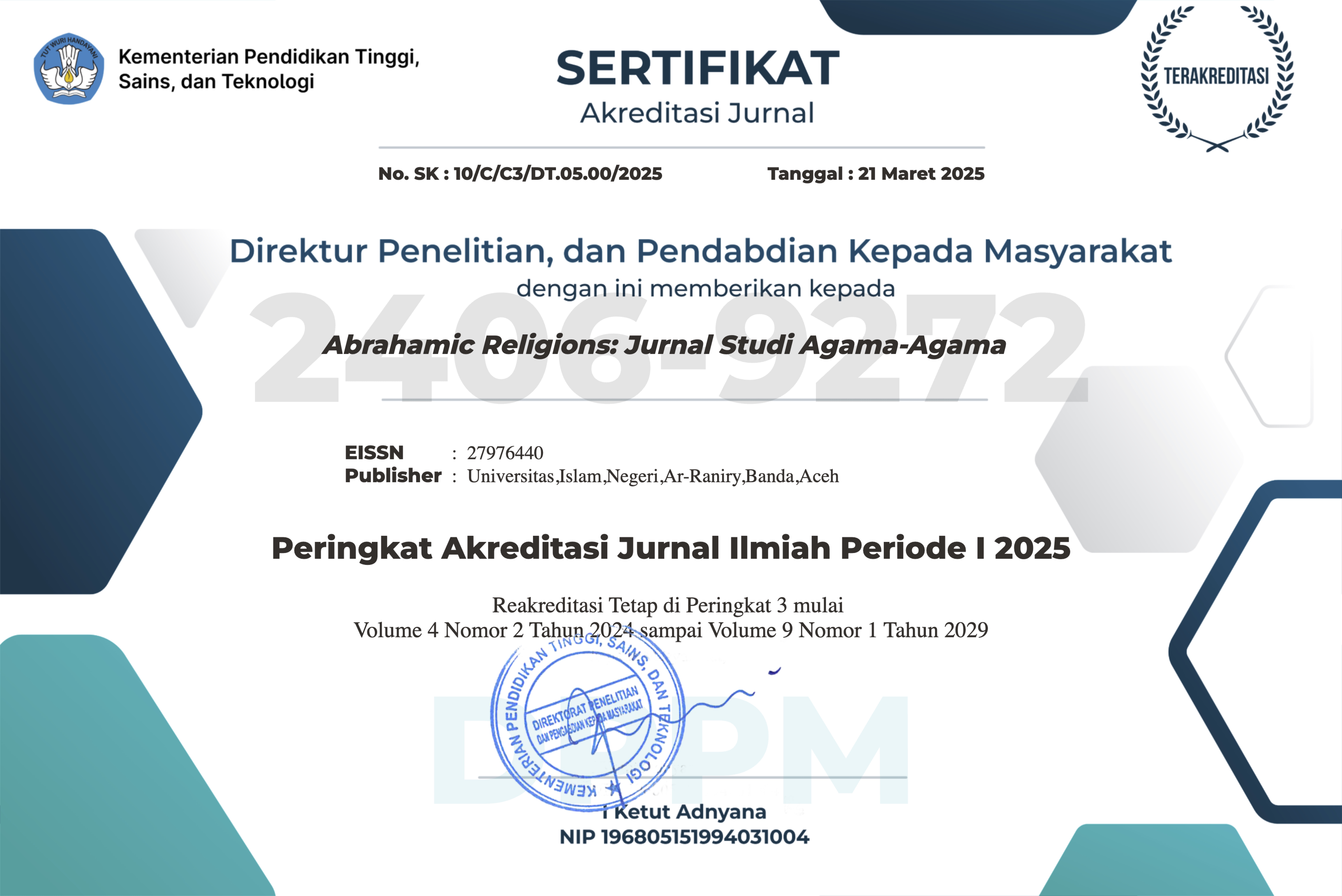Navigating Sexism in the Workplace: A Comparative Study of Muslim and Buddhist Female Workers in Malaysia
DOI:
https://doi.org/10.22373/arj.v4i2.25460Keywords:
Sexism, Gender Equality, Muslim Women, Buddhist Women, MalaysiaAbstract
This study explores the widespread issue of sexism in Malaysia, focusing on its impact on Muslim and Buddhist female workers. Employing a qualitative approach, the research involves observations, interviews, and documentation to examine how sexism affects women's job opportunities across various sectors. The findings reveal that despite legal progress, sexism remains deeply ingrained, manifesting through discriminatory practices that impede women’s professional advancement and reinforce gender stereotypes. Muslim women encounter additional challenges related to compliance with Islamic teachings in the workplace, while Buddhist women face cultural prejudices that impact their employment opportunities. This study contributes to the gender equality discourse by providing insights into the specific experiences of women in Malaysia, highlighting the need for targeted interventions to combat sexism and promote a more equitable society.
References
Abdul Rahman, S. F. (2000). Pemartabatan Wanita di Malaysia. JAKIM.
Abdullah, M. M. (1993). Konsep malu dan segan orang Melayu berdasarkan hikayat dan cerita Melayu lama. https://books.google.co.id/books?id=7UWanQAACAAJ
al-Hibri, A. (2001). Wanita dalam masyarakat Indonesia: akses, pemberdayaan dan kesempatan. Sunan Kaliga Press.
Andik Wijaya, Jeny Harianto, & Mettadewi Wong. (2022). KAJIAN AGAMA BUDDHA TENTANG PERLINDUNGAN PEREMPUAN. Dhammavicaya : Jurnal Pengkajian Dhamma, 4(2), 49–55. https://doi.org/10.47861/dv.v4i2.32
Chau, C. (2021). Malaysian Priorities Safety of Employees Working from Home - Harian Metro. 2021.
Hakiki, A., & Mashuri, M. F. (2021). Seksisme sebagai moderator hubungan sense of community dan kinerja mahasiswa organisatoris. Cognicia, 9(2), 53–63. https://doi.org/10.22219/cognicia.v9i2.15766
Huriani, Y. (2021). Pengetahuan Fundamental Tentang Perempuan. Lekkas.
Ilyas, W. J. (2015). PEREMPUAN DAN KORUPSI: SEKSISME DALAM PEMBERITAAN MEDIA ONLINE WOMEN AND CORRUPTION: SEXISM ON ONLINE NEWS MEDIA. Jurnal Masyarakat Dan Budaya, 17(3), 271–284. https://doi.org/10.14203/JMB.V17I3.319
Jannah, P. M. (2021). Pelecehan Seksual, Seksisme dan Bystander. Psikobuletin:Buletin Ilmiah Psikologi, 2(1), 61. https://doi.org/10.24014/pib.v2i1.12023
Kumala Asri Drakel, J., & Galih Setyawan, K. (2022). Eksistensi Eksistensi Kuli Panggul Perempuan di Pasar Pabean Surabaya Ditengah Maraknya Budaya Seksisme. Jurnal Dialektika Pendidikan IPS, 2(1), 34–44. https://doi.org/10.26740/PENIPS.V2I1.44613
Mazaya, V. (2014). KESETARAAN GENDER DALAM PERSPEKTIF SEJARAH ISLAM. Sawwa: Jurnal Studi Gender, 9(2), 323. https://doi.org/10.21580/sa.v9i2.639
Ngah, M. N. Bin. (1985). Islamic Worldview of Man, Society and Nature among the Malays in Malaysia. In Malaysian Worldview. Institute of Southeast Asian Studies.
Ollenburger, J. C. (2002). Sosiologi Wanita. Rineka Cipta.
Saravanan, D. S. M. (n.d.). Sidang Media Penguatkuasaan Akta Kerja 1995 (Pindaan) 2022. Https://Www.Youtube.Com/Watch?V=zZwVVvwTJg.
Shalaby, A. (1998). Perbandingan Agama (Agama-Agama Besar di India: Hindu-Jaina-Buddha),. Bumi Aksara.
Sihombing, Y. P. (2016). ISU SEKSISME KOMUNIKASI VISUAL DALAM BINGKAI SEMIOTIKA (Studi Kasus pada Iklan United Nation Woman). Jurnal Inovasi, 10(1), 45–58. https://journal.binadarma.ac.id/index.php/jurnalinovasi/article/view/663
Wiki Impact. (2021). 9 Organisations Empowering Women in Malaysia. https://www.wikiimpact.com/9-organisations-empowering-women-in-malaysia/
Downloads
Additional Files
Published
Issue
Section
License
Authors who publish in this Journal agree to the following terms:
- Authors retain copyright and grant the journal right of first publication with the work simultaneously licensed under Attribution-ShareAlike 4.0 International (CC BY-SA 4.0) allows others to share the work with an acknowledgment of the work's authorship and initial publication in this journal.
- Authors are able to enter into separate, additional contractual arrangements for the non-exclusive distribution of the journal's published version of the work (e.g., post it to an institutional repository or publish it in a book), with an acknowledgment of its initial publication in this journal.
- Authors are permitted and encouraged to post their work online (e.g., in institutional repositories or on their website) prior to and during the submission process, as it can lead to productive exchanges, as well as earlier and greater citation of published work. (See The Effect of Open Acces)















